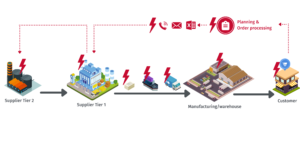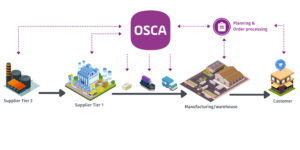Over the past two to three years, pretty much everybody has written or talked about supply chain disruptions, shortages, bottlenecks, etc. I will certainly not repeat anything of this now but would rather like to write about how the past years have changed us, our domain and how we work.
We have learned, moved on and have been adjusting ever since – ourselves, our performance, and our processes. Turns out that we have identified new job requirements in the field of supply chain and logistics as well as in environmental, social and governance (ESG), which I consider being part of supply chain management.
Michael Conley at Wolters Kluwer has written a great article about emerging roles for corporate supply chain functions, check it out here. Up-and-coming job profiles like Data-Driven Planner, Traceability Analyst, Supply Chain Communicator, and Supply Network Innovator address altered requirements we need to be able to tackle. But how will we attract new and younger talents for the supply chain space? Are we ready for innovators?
Digital Expectations
Millennials and the Gen Z workforce do expect a certain level of digitization; and I don’t mean ERP-systems.

The younger generations grew up digital and connected, hence they expect connectivity in their area of work, too. Why should anybody put information in e-mails or Excel spreadsheets when it could also easily be put into a system or platform which is accessible for everybody, from anywhere?
Is that the reality in today’s corporate supply chain functions? The answer is (wait for it)⇾ no.
Supply chain experts still waste too much time and human talent with data collection, data input and data synchronization (read: manual tasks). Interestingly, automation and SCM software solutions have become alternatives to these matters two decades ago already. Supply chain management software provides control towers and combines data, documents & communication in a single tool. And it does something more; it automatically updates other systems like ERP and WMS.

Millennial and Gen Z professionals identify stronger with purposeful work. The aforementioned new job profiles all depend on connected systems and a single point of access. The younger generations will not swallow anything but a modern, digitized work environment. So, in order to secure the best talent in the market, digital transformation is key.
Attract and retain
Companies need to embrace digitization and connected systems now, there is no better time than the present to attract new talent with exciting projects and new job roles. New people bring innovation and new ideas – if we let them. The latter is key to retaining talent.
